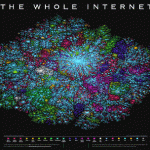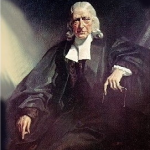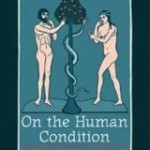Holiness and Humanness
On Friday, March 14, 2014 at the Hidden Life blog I posted this:
It seems to have been the doctrine of some advocates of Christian perfection, especially some pious Catholics of former times, that the various propensities and affections, and particularly the bodily appetites, ought to be entirely eradicated. But this doctrine, when carried to its full extent, is one of the artifices of Satan, by which the cause of holiness has been greatly injured. It is more difficult to regulate the natural principles, than to destroy them; and there is no doubt that the more difficult duty in this case, is the scriptural one. We are not required to eradicate our natural propensities and affections, but to purify them. We are not required to cease to be men, but merely to become holy men.
This is the kind of thing I was surprised to discover when I began reading the old holiness writings. Why do I say “surprised”?
I heard the holiness message of entire sanctification in the context of the camp-meeting when I was a young man. The promise as I heard it seemed to be that God could sin-proof me by the power of the Holy Spirit, so that I would be free from all inner inclinations to sin. As a young man who was struggling with guilt over my sexual desires, this seemed to be just what I needed. When evangelists spoke of “inward sin” I thought I knew just what they were talking about.
And, of course, I was dead wrong. I think this illustrates the danger of talking about these things to people who are not ready for them. I was coming to the altar expected — and not finding — an emotional, religious experience that would moderate my sexual drive. And, of course, there is no such experience.
Nor was it ever promised. It is not promised in Scripture — and, I came to discover, it was not promised in the holiness literature of the Wesleyan movement either.
I believe the Holy Spirit’s work in our lives is to redeem and purify our humanity. But, we were created by God to be human beings. There is no shame in being human. But, our tendency toward selfishness — and the drive toward personal autonomy — leads us toward sin. They bring us out of harmony with God, out of harmony with other people, and out of harmony with the purposes of God for our lives.
 Sanctification deals with this dark side of human nature — not anything that is genuinely constitutive of what people are supposed to be — we were created for harmony with God.
Sanctification deals with this dark side of human nature — not anything that is genuinely constitutive of what people are supposed to be — we were created for harmony with God.
The early stages of the Christian life are bound to be dominated by the need for forgiveness and restoration. We need to know that there is a God of love and justice — and (because of legitimate guilt) that our relationship with God can be restored.
But, from there on the issue is Christlikeness — becoming more and more like the One who is the true exemplar for the human race. And, it means (if this makes any sense) becoming more human, not less human.
And, so the message of Christian Perfection — being wholly devoted to God and becoming increasingly Christlike in our life and attitudes — becomes a complex message, because it it bound up with all the complexities of being human.
God does not desire — God never has and never will — that we become anything other than human beings — we are redeemed to become holy and faithful human beings, living out God’s intention for all the human race.









